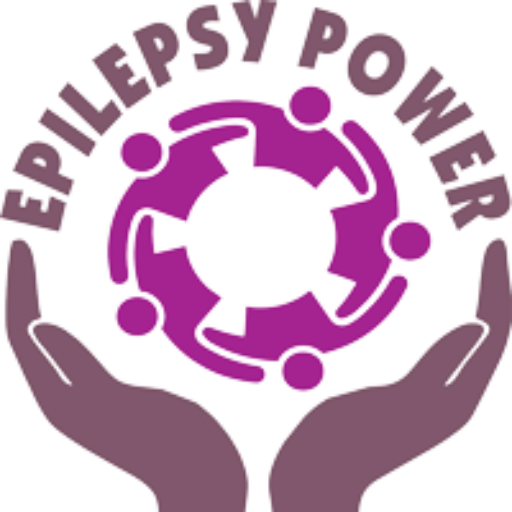- Introduction
- Section 1: Seizures and triggering factors
- Section 2: Physical effects
- Section 3: Cognitive effects
- Individual assessment tool
- Concluding remarks
- Quiz
Total Participants: 2
Epilepsy is a neurological disorder characterised by recurrence of seizures which are transient neurological events with different manifestations (generalized tonic-clonic seizures, focal seizures with or without consciousness impairment, absences). Furthermore, some seizures can be provoked by certain stimuli (sounds/rhythms, lights, reading, etc.): the so-called reflex-seizures. In these cases you should avoid certain stimuli linked to these kinds of seizures. Identifying what your triggers are will help you perform your job safely.
A key factor for maintaining a normal life and, ensuring your work continues smoothly, is seizure control through regular neurological check-ups and medication adherence. The goal is to achieve seizure control through the right therapy, tailored to your specific needs.
When applying for a job, you should consider the challenges and limitations posed by your neurological disorder. Understanding the type of seizures you experience, their triggers and their impacts, can help you choose a job that aligns with your needs and abilities.
How do you know which kind of seizure is specific to you? Ask your neurologist—their role is to help you understand your epilepsy.
We can categorize seizures into generalized seizures (such as absences and tonic-clonic seizures) and focal seizures, which may or may not involve impaired awareness and can occur with or without prominent motor symptoms. People that have generalized seizures may experience more challenges; for example, tonic-clonic seizures and atonic seizures can put you at risk of falling or getting injured. As a consequence, it may be wise to avoid jobs involving operating heavy machinery or high altitudes. Another type of seizure is absence seizures, which can cause brief loss of consciousness, leading to missed moments during conversations or activities. If you experience awareness impairment during focal seizures, you may be “unreachable” for some moments. In these cases, it is important for your colleagues to remain calm and reassure you till the end of the seizure. During these seconds or minutes, you are not able to react promptly to external stimuli, so you should avoid jobs with dangerous machinery and tools (e.g. saws, knives) and high altitudes. Training courses for your colleagues and correct information about your condition can be useful for ensuring they know how to help you appropriately.
Finally, you could experience focal seizures, without awareness impairment, with various symptoms: olfactive, auditive, visual, motor symptoms, etc. These symptoms can vary widely and may include strange smells, sounds, visual distortions, or involuntary movements.
Another key factor to consider is the frequency of your seizures. Whilst medication can help manage and reduce seizure frequency, it’s possible that you may still experience seizures despite proper treatment. If you have frequent seizures, you might consider applying for disability benefits or inquire about working remotely. Additionally, you should avoid working with machinery or at heights. Having frequent seizures may also prevent you from operating a vehicle, so it’s best to avoid jobs that require frequent driving.
It’s important to consider that some seizures may occur predominantly at night or in the early morning. If this is the case, you could ask your employer to modify your shifts to help better manage your epilepsy. Specifically, you could request to avoid early morning or night shifts, to allow you adequate time to recover well from seizures.
You should consider how some syndromes present with a cyclic pattern throughout the year or across different months. For example, if you suffer from catamenial epilepsy you could experience seizures in a specific period of your menstrual cycle, and so you might want to consider asking for remote working during these periods.
Sleep deprivation and photosensitivity
It’s necessary to consider the triggering factors and limitations from seizures. Some specific issues rely on triggering factors: stress, light and sleep deprivation could prompt increased risk of seizures.
What does photosensitivity mean?
Photosensitivity refers to a condition where certain types of lights, particularly flickering lights, can cause discomfort and trigger seizures. If you experience photosensitivity, you should avoid exposure to flickering lights or patterns. Depending on your symptoms, you might benefit from using blue lenses and requesting specific accommodations in your workplace environment. Additionally, in some cases, closing one eye might help mitigate the effects and reduce the chance of triggering a seizure.
Sleep deprivation can also be a significant seizure trigger, so it is important to ensure you get enough rest. You have the right to request accommodations to avoid night shifts or very early starting times. Ensuring a consistent and adequate sleep schedule can greatly help to manage your epilepsy and reduce the risk of seizures. It’s important to discuss these needs with your employer to create a supportive and understanding work environment.
Finally, stress can lead to an increased risk of seizures. You can assess the level of stress in consultation with your doctor. The impact of stress on seizure risk is closely linked to sleep quality, so prioritise both the quantity and quality of your sleep. Consider using a wristband, Apple watch or Fitbit to monitor your sleep duration and schedule additional naps if you need.
Your seizures should not limit your career choices; but understanding the personal characteristics of your epilepsy can help you in selecting the right job for you. Conducting a thorough self-assessment is crucial, as someone with epilepsy, you are best equipped to understand the unique aspects of your own disorder.
Methods
We will provide you some examples and some general indications, visual and text materials, to evaluate specific issues related to epilepsy and seizures. We will ask you to analyse with your doctor the triggering factors of your seizures.
Resources on epilepsy and employment
If you want to know more about epilepsy and employment, you can consult this site:
https://www.epilepsy.org.uk/involved/campaigns/employment
If you want to know something about epilepsy and seizures, you could watch these videos:
https://www.youtube.com/watch?v=d1HS1SZnGEM&list=PLaqifX3CBj0hssiDdo6V-LkZD1reMlZn_ (EN)
https://www.youtube.com/watch?v=k7iPIQXvKjQ&list=PLaqifX3CBj0hssiDdo6V-LkZD1reMlZn_&index=3 (EN)
